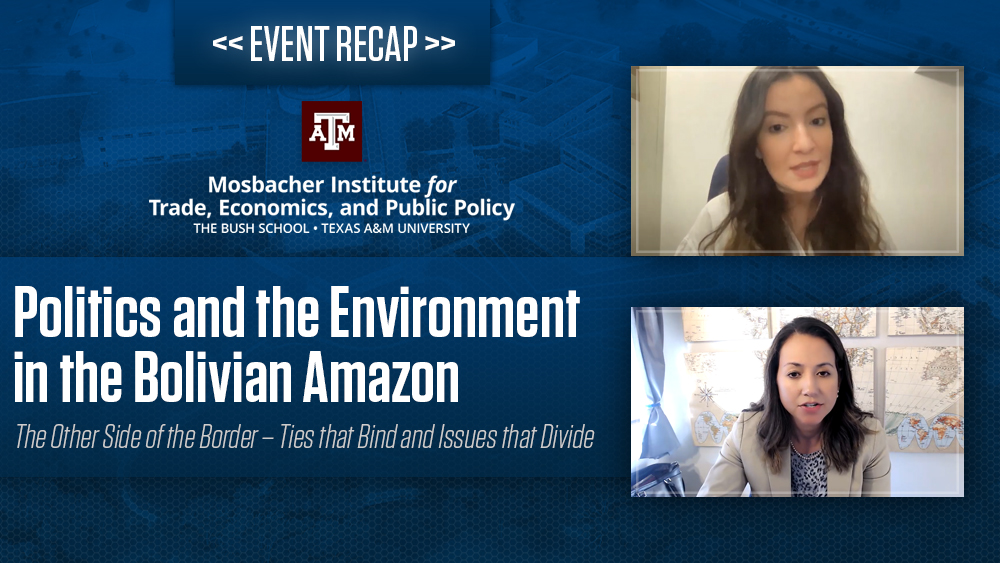
On September 28, 2021, Jhanisse Vaca Daza, cofounder of Ríos de Pie (Standing Rivers), a nonviolent citizen’s movement focused on human rights and environmental rights in Bolivia, spoke about politics and the environment in the Bolivian Amazon. Vaca Daza began her talk with images and descriptions of volunteer firefighters working with little or no equipment to illustrate how numerous under-resourced communities are fighting fires in the Bolivian Amazon. She also detailed the huge ecological and human loss caused by the fires and stressed that those losses continue to mount as the fires continue to burn, even up to today.
While fires have spanned across the Amazon in countries such as Brazil, the unique aspect of the Bolivian case, as outlined by Vaca Daza, is that in most cases the fires are intentionally started and the penalties for starting illegal fires are very small. With Bolivia ranked as the second poorest country in Latin America, the government and private industry use the fires to clear the land for economic uses. For example, in 2019 the Bolivian government made a deal to sell beef to China, more beef than had ever been exported before, but then didn’t have the resources to control or contain the fires that were set to expand the cattle industry.
Vaca Daza spoke candidly about the challenges of utilizing international aid amidst the political tumult and corruption in Bolivia, observing that there are a lot of people in Bolivia who profit from the international aid inspired by crisis situations. Help given directly to the firefighters for their immediate requirements is much needed, but even better, Vaca Daza said, would be assistance in building the institutions and the civil society that can help get Bolivia out of its dependence loop. She also illuminated the danger in being an environmental activist (or any type of activist) in a place with an underdeveloped civil society such as Bolivia and closed by emphasizing her honor and respect for the volunteer firefighters who continue to go to the burning areas whether or not help is received.
If interested, you can follow Ríos do Pie at @StandingRivers (English) or @RíosDePie (Spanish) on Twitter. You can also follow Vaca Daza at @JhanisseVDaza.
The talk was the first for this year in the Bush School’s The Other Side of the Border: Ties That Bind and Issues That Divide speaker series, which features practitioners working on the Border, Mexico, and Latin America and is sponsored by the Borders and Migration Program of the Mosbacher Institute for Trade, Economics, and Public Policy.
The next talk in the series will be on November 10, 2021, when border correspondent and author Alfredo Corchado will give a talk titled “Reporting Crime, Violence, and Narcotrafficking in Mexico: Challenges, Insights, and the Road Ahead.”

